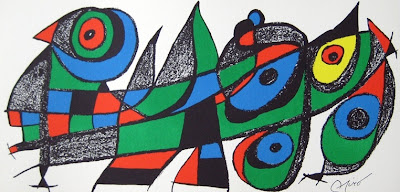LEITURAS: Maquiavel, as origens teóricas do Estado moderno. / READINGS: Machiavelli, the theoretical origins of the modern state.
Fragmento escrito por Samuel de Jesus.
PORTUGUESE VERSION
A monarquia proposta pelo renascimento não se baseia na legitimidade do sangue ou linhagem, na herança ou tradição, mas na capacidade pessoal do soberano, em sua sabedoria (COSTA, 2005, p.35).
Quanto aos que, pela própria virtú e não pela fortuna, se tornam príncipes digo que os mais
importantes foram Moíses, Ciro, Rômulo, Teseu, etc. (...) examinando suas ações
e suas vidas, veremos que não receberam da fortuna mais que a ocasião que lhes
deu a matéria para introduzirem a forma a que lhes aprouvesse. Sem ocasião a virtú de seu ânimo se teria perdido, assim como, sem a virtú a ocasião
teria vindo em vão. (MAQUIAVEL, 2006, p. 24)
Ou ainda
Aqueles que por caminhos valorosos se tornam como
estes se tornam príncipes, conquistam o principado com dificuldade, mas o
conservam com facilidade. As dificuldades que tem para conquistá-lo nascem em
parte da nova ordem e dos novos métodos que são obrigados a introduzir para
fundar o seu Estado e a sua segurança. Devemos convir que não há coisa mais
difícil de se fazer, mas duvidosa de se alcançar, ou mais perigosa de se
manejar do que o introdutor de uma nova ordem, porque quem o é tem por inimigo
todos aqueles que se beneficiavam com a antiga ordem, e como tímidos defensores
todos aqueles a quem as novas instituições beneficiaram. (MAQUIAVEL, 2006, p.
25).
Segundo Maquiavel o que convém para o príncipe ser estimado é a
realização de grandes empreendimentos, assim como os raros exemplos que der de
si. Cita o caso de Fernando de Aragão que considerando suas ações como a
conquista de Granada agiu em um momento de paz interna e sem temor de ser
impedido, manteve os barões de Castela ocupados na empresa de lançar-se ao
combate para a conquista de Granada. Criou exércitos com dinheiro da igreja e
do povo e aproveitou-se dessa longa guerra para lançar os fundamentos de suas
milícias que legitimariam definitivamente seu poder. (MAQUIAVEL, 2006, p. 105)
Um príncipe também é estimado quando é verdadeiro amigo ou verdadeiro
inimigo, ou seja, mostra-se a favor ou contrário a outrem. Isso é melhor que se
manter neutro, pois se o príncipe não se manifestar será sempre presa de quem
vencer, pois o vencedor não irá querer saber de quem não lhe apoiou na
adversidade e o perdedor igualmente o rejeitará por que não quis empunhar suas
armas a seu favor, partilhar se sua sorte. (MAQUIAVEL, 2006, p. 106)
Em porque razões os príncipes da
Itália perderam seus Estados. Aos príncipes novos afirma que eles são muito
mais observados do que um hereditário e quando suas virtudes são reconhecidas
elas atraem um número maior de súditos, maior a lealdade, afinal os homens se
ligam muito mais em coisas presentes que passadas, apreciam-no e não procuram
outra coisa e o defenderão em qualquer circunstância enquanto estiver cumprindo
bem o seu papel. O príncipe novo terá glória dobrada: a de ter fundado um
principado novo e tê-lo consolidado com boas leis, armas e exemplos. (MAQUIAVEL,
2006, p. 117).
Considera então os senhores da Itália como o rei de Nápoles, o duque de
Milão. Seus primeiros erros se referem aos exércitos e alguns deles tiveram o
povo como inimigo. Existem os príncipes que tiveram a fortuna e a perderam por indolência, sobretudo por não terem se
precavido nos tempos de bonança, imaginarem que os tempos poderiam mudar.
Quando os tempos adversos chegam eles fogem e acreditam que podem ser chamados
de volta e isso não é boa coisa, pois quando isso acontece não é bom para a sua
segurança, pois essa segurança é vil, a segurança realmente boa é aquele que só
depende de si e de sua virtú e não de
outrem. (MAQUIAVEL, 2006, p. 118)
A capacidade pessoal e sabedoria do soberano deverão se estender para
além da política realizada em tempos de paz, mas também em seu extremo, a
guerra. Em A arte da guerra Maquiavel
invoca o passado, resignifica as antigas estratégias e táticas de guerra dos
romanos na antiguidade pensando que os príncipes poderiam utilizá-las ao
promover a unificação da Itália. Destaca os exemplos vitoriosos de Felipe da
Macedônia e Ciro, o persa que construíram exércitos para depois comandá-los por
meio de princípios valorosos.
Após várias explicações sobre estratégias e táticas afirma que os pontos
nevrálgicos da guerra são três; os homens,
o ferro e o dinheiro. Os homens e o ferro produzem pão e dinheiro, mas por
outro lado pão e ferro não fazem homens e o ferro. Ainda segundo Maquiavel há
dois tipos de generais, um que realiza grandes feitos com soldados bem
organizados e boa disciplina e assim sua tarefa consistiu em manter os soldados
que já se encontravam em boa ordem e ainda outros que antes de vencer o inimigo
tiveram que adestrar e organizar seus homens, esses são os mais valorosos, por
exemplo, Felipe da Macedônia, Ciro, rei dos persas e Graco, o romano. Todos
esses criaram um exército primeiro e somente depois passaram a comandá-lo,
assim o fizeram pela sabedoria e principalmente por terem súditos capazes de
serem bem treinados, porém jamais conseguiriam caso os seus súditos estivessem
corrompidos e sem o hábito da obediência honesta. (MAQUIAVEL, 2002, p. 129 e 131)
Voltemos,
porém, aos italianos que, por não terem príncipes sábios, não adotaram nenhuma
ordem efetiva e, por não terem sido obrigados pela mesma necessidade que se
impôs aos espanhóis, sendo hoje criticados em todo o mundo. Contudo, não são
culpados os povos, mas seus dirigentes, castigados e que pagam um justo preço
pela sua ignorância, perdendo ignominiosamente o poder, sem dar exemplo de
valor. (MAQUIAVEL, 2002, p.132)
Por final:
Posso afirmar
que o primeiro dos soberanos dos Estados italianos que, seguir esse caminho se
tornará senhor de todo o país. Acontecerá em seu Estado o que aconteceu com o
reino da macedônia. (MAQUIAVEL, 2002, p. 133).
ENGLISH VERSION
The monarchy proposal for the revival is not based on the legitimacy of blood or lineage, the heritage or tradition, but in the personal capacity of the sovereign, in his wisdom (COSTA, 2005, p.35).
As for those who, by their own virtu, not by fortune become princes say that the most important were Moses, Cyrus, Romulus, Theseus, etc.. (...) Examining their actions and lives, we will not receive more than the fortune that gave them the opportunity to introduce the subject so that they pleased. No occasion virtu of his mind would have been lost, as without virtu occasion would have been in vain. (MACHIAVELLI, 2006, p. 24)
Or
Those who by valorous ways become like these become princes, conquered the principality with difficulty, but retain with ease. The difficulties we have to earn it in part born of the new order and new methods that are required to introduce to establish their state and their safety. We agree that there is nothing more difficult to do, but doubtful to achieve, or more dangerous to handle than the introducer of a new order, because who is the enemy is those who benefited from the old order, and how timid defenders all those who benefited from the new institutions. (MACHIAVELLI, 2006, p. 25).
According to Machiavelli what should the prince be esteemed is the realization of large projects, as well as rare examples you give of yourself. Cites the case of Ferdinand of Aragon which considering their actions as the conquest of Granada acted in a moment of inner peace and without fear of being prevented, kept the barons of Castile occupied in the company launching into the fight for the conquest of Granada. Armies created with money from the church and the people and took advantage of that long war to lay the foundations of their militias definitely legitimize their power. (MACHIAVELLI, 2006, p. 105)
A prince is also estimated when real friend or real enemy, ie, shows up in favor or opposed to others. It is better to remain neutral, because if the prince does not manifest will always prey to who wins because the winner will not want to know who did not supported in adversity and the loser also reject why would not wield their weapons to their Please share if your lucky. (MACHIAVELLI, 2006, p. 106)
In reasons why the princes of Italy lost their states. The young princes said they are much more than a hereditary observed and their virtues are recognized when they attract a larger number of subjects, greater loyalty, after all men are bound much more things that present past, enjoy it and not looking for something else and defend in all circumstances while fulfilling his role well. The young prince will double glory: that of having founded a new principality and have it consolidated with good laws, weapons and examples. (MACHIAVELLI, 2006, p. 117).
Then consider the masters of Italy as king of Naples, the Duke of Milan Her first errors refer to the armies and some of them had the people as the enemy. There are the princes who had the fortune and lost by indolence, especially because they were not cautious in boom times, imagine that times could change. When bad times arrive they flee and believe they can be called back and this is not a good thing, because when this happens is not good for their safety, as this security is vile, security really good is that it only depends on himself and his virtu and not of others. (MACHIAVELLI, 2006, p 118).
The personal ability and wisdom of the sovereign should extend beyond politics conducted in peacetime, but also at its end, the war. In The Art of War Machiavelli invokes the past significance to the old strategies and tactics of the Romans in antiquity thinking that the princes could use them to promote the unification of Italy. Highlights examples of victorious Philip of Macedon and Cyrus the Persian armies built and then lead them through principles of valor.
After some explanations of strategies and tactics says the neuralgic points of the war are three, men, iron and money. Men and iron produce bread and money, but otherwise do not bread and iron men and iron. Also according to Machiavelli are two types of generals, who performs great deeds with soldiers well organized and good discipline and so his task was to keep soldiers who were already in good order and still others who before winning the enemy had to train and organize his men, these are the most valuable, for example, Philip of Macedon, Cyrus king of the Persians and Gracchus, the Roman. All these have created an army first and only then began to command it, did so mainly by wisdom and by having subjects capable of being trained, but never could if their subjects were corrupted and without the habit of obedience honest. (MACHIAVELLI, 2002, p. 129 and 131)
But to return to the Italians, for not wise princes, took no effective order, and they were not bound by the same need to be imposed to the Spaniards, being criticized today worldwide. However, there are guilty people, but their leaders punished and pay a fair price for their ignorance, ignominiously losing power, without giving example value. (MACHIAVELLI, 2002, p.132)
By the end:
I can say that the first sovereign of the Italian states that following this path will become master of the whole country. Happen in your state what happened to the kingdom of Macedonia. (MACHIAVELLI, 2002, p. 133).
Reference.
MAQUIAVEL, Nicolau, O Príncipe. - São Paulo: Martins Fontes, 2004. (coleção Obras de Maquiavel)





Comentários
Postar um comentário